PhD students in Comparative and Molecular Biosciences (CMB) are engaged in research in biomedical sciences at the intersection of animal and human health. Our students study infectious and zoonotic diseases, genetics and genomics, molecular mechanisms of health and disease, virology and bacteriology, among other areas of research.
A-L
Ahmed, Shamim
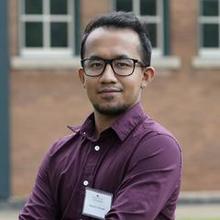
Shamim Ahmed
Degree
BS from Minnesota State University Mankato
Advisor
Dr. Alon Herschhorn
Arnold, Susan
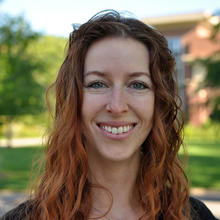
Susan Arnold
Advisor
Dr. Liz Pluhar
Degrees
DVM, Diplomate ACVIM (Neurology)
Research
My general area of research is in immunotherapy-based cures for primary brain tumors. I focus
on high grade gliomas in dogs, which share many important features with glioblastoma in
people. Our goal is to optimize multimodal immunotherapy-based treatment, consisting of tumor
lysate vaccines and immune checkpoint inhibition, in dogs so that this work can be translated
into human clinical trials. My thesis project is focused on determining why French bulldogs with
high grade gliomas have a uniformly poor response to immunotherapy, which will help to
optimize the treatment and predict outcome in people with similar tumor features.
Asmus, Aaron

Aaron Asmus
Degree
BS from Iowa State University
Advisor
Dr. Noelle Noyes
Baker, Julia
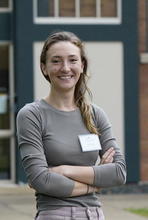
Julia Baker
Dual D.V.M./Ph.D. student, currently in PhD curriculum
Degree
B.S. Biochemistry, Vassar College
Advisor
Dr. Kim VanderWaal
Research
I am a DVM/PhD student interested in molecular pathogenesis of infectious diseases.
Baggar, Hanen
Hanen Baggar
Degrees
MS, Veterinary Science , Washingston State University
BS, Microbiology, King Abdul Aziz University
Advisor
Dr. Rob O'Connor
Blanco, Cristina
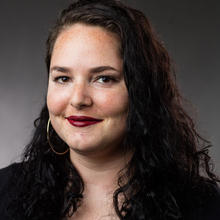
Cristina Blanco
Degrees
B.S., Biology, Unviersity of South Flordia
M.S. Fisheries and Wildlife Sciences, Arkansas Tech University
Adviser
Currently completing requirements of the DVM program
Research
I am a DVM/PhD student interested in ecosystem health sciences, zoonoses, and infectious disease ecology.
Bohm, Ellie
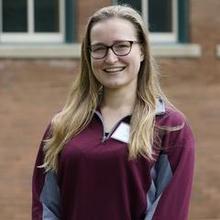
Ellie Bohm
Degree
BS from University of Minnesota Twin Cities
Advisor
Dr. Matthew Aliota
Cain, Michaela
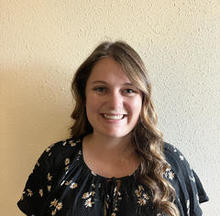
Michaela Cain
Degree
BS, Biology, Point Loma Nazarene University
Advisors
Dr. Hinh Ly
Dr. Yuying Liang
Draper, Garrett
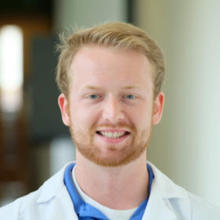
Garrett Draper
Degree
B.S., Genetics, Cell Biology, & Development, University of Minnesota - Twin Cities
Advisor
Dr. David Largaespada
Research
The genetic tumor predisposition syndrome Neurofibromatosis type 1 (NF1) results from the inheritance of a mutated copy of NF1, a Ras-GAP tumor suppressor gene. Subsequent loss of the remaining wild-type allele in Schwann lineage cells leads to hyperactive Ras signaling, cell proliferation, and the formation of benign plexiform neurofibromas. These benign tumors can progress to lethal malignant peripheral nerve sheath tumors (MPNSTs). Although NF1 and other mutations have been associated with MPNST formation, their temporal dependence during Schwann cell development using a human cell model has not been studied. I aim to utilize a model of induced MPNSTs (iMPNSTs) for a better understanding of the timing at which these mutations occur during Schwann cell development to result in MPNSTs.
Frank, Lexi
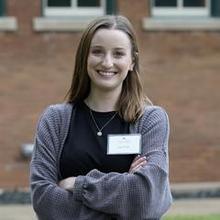
Lexi Frank
Degree
MPH from University of Michigan, BS from University of Michigan
Advisor
Dr. Peter Larsen
Fumuso, Fernanda

Fernanda Fumuso
Degree
DVM, Universidad de Buenos Aires
Advisor
Dr. Rob O'Connor
Hamsher, Hayden Kenneth Robert
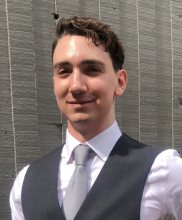
Hayden Hamsher
Degrees
B.S., Genetics, Cell Biology, and Development
Bio
Hayden is a graduate of the University of Minnesota's College of Biological Sciences with an undergraduate degree in Genetics, Cell Biology, and Development. He has several years of research experience in human Natural Killer cell immunotherapy, specifically in investigating novel treatments for Multiple Myeloma and Acute Myeloid Leukemia. His research interests and education are focused around genetics and how organisms develop, as well as using computational power to discover truth in large datasets. He hopes to help further the understanding of how humans develop and to one day contribute to allowing parents the ability to prevent or mitigate developmental disabilities in their children. He is also interested in regenerative medicine and stem cell therapy, and how genetic editing can advance the field.
Hatfield, Jason
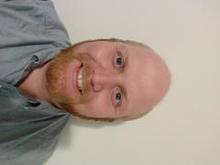
Jason Hatfield
Degree
B.S., Animal Science and Biochemistry, Berry College
Advisor
Dr. Hinh Ly
Jensen, Jake
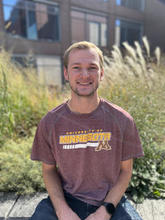
Jake Jensen
Degrees
BA, Biology and Biochemistry, The College of Saint Scholastica
Advisor
Dr. Branden Moriarity
Research interests
Novel gene therapies
Johnson, Abigail
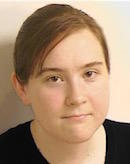
Abigail Johnson
Degrees
M.S., Immunology, University of Cincinnati
B.S., Animal Science, University of Minnesota Twin Cities
Advisor
Dr. Tim Johnson
Research
My research focuses on identifying potential probiotics that can combat/prevent colonization of pathogens associated with commercial turkey production, pathogen inhibition performance in probiotic bacteria which will aid in faster screening of future probiotic candidates and the development of a commercial.
Awards and Honors
- USDA National Needs Fellowship in Poultry Health and Production 2018-2021
- MnDRIVE Global Food Ventures Fellowship, Recipient, 2021
- Pomeroy Legacy Scholarship, Recipient, 2020
Publications
- Azam M, Mohsin M, Johnson TJ, Smith EA, Johnson A, Umair M, Saleemi MK, Sajjad-Ur-Rahman. Genomic landscape of multi-drug resistant avian pathogenic Escherichia coli recovered from broilers. Vet Microbiol. 2020 Aug;247:108766. doi: 10.1016/j.vetmic.2020.108766. Epub 2020 Jun 27. PMID: 32768218.
- Boll EJ, Overballe-Petersen S, Hasman H, Roer L, Ng K, Scheutz F, Hammerum AM, Dungu A, Hansen F, Johannesen TB, Johnson A, Nair DT, Lilje B, Hansen DS, Krogfelt KA, Johnson TJ, Price LB, Johnson JR, Struve C, Olesen B, Stegger M. Emergence of Enteroaggregative Escherichia coli within the ST131 Lineage as a Cause of Extraintestinal Infections. mBio. 2020 May 19;11(3):e00353-20. doi: 10.1128/mBio.00353-20. PMID: 32430467; PMCID: PMC7240153.
- Hwang, Haejin; Miller, Elizabeth A.; Johnson, Abigail; Valeris-Chacin, Robert; Nault, Andre J.; Singer, Randall S.; Johnson, Timothy J.. (2020). Efficacy of prebiotics and probiotics on growth performance in poultry: A protocol for a systematic review. Retrieved from the University of Minnesota Digital Conservancy, https://hdl.handle.net/11299/216461.
- Student Research Report: Abigail Johnson Johnson, Abigail Gobbles Magazine, MN Turkey Growers Assoc. 2021. In press.
Karkache, Ismael
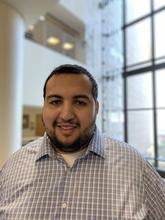
Ismael Karkache
Degree
BS, Biology, University of Minnesota Twin Cities
Advisor
Dr. Elizabeth Bradley
Kauffman, Anna

Anna Kauffman
Degree
BS, Veterinary and Biomedical Sciences, Pennsylvania State University
Advisor
Dr. Hinh Ly
Khaw, Melissa

Melissa Khaw
Degree
BS from University of Minnesota Twin Cities
Advisor
Dr. Jeff Miller
Kozurek, Emma Christine

Emma Kozurek
Bio
Emma's primary interests include immunology and comparative biology. Emma earned a BA in Biology at St. Catherine University in 2020 and has since been a researcher at the University of Minnesota Masonic Cancer Center. She is excited to continue her education at the University of Minnesota!
Krueger, Joshua
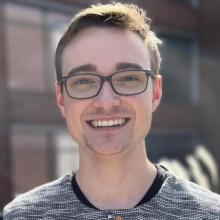
Joshua Krueger
Bio
Researcher at the University of Minnesota, recent admission into the Comparative Molecular Biology graduate program, Josh strives to take his research from the bench to the bed by translating effective therapies while maximizing availability to patient populations in need.
Li, Manci
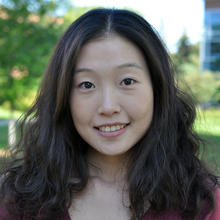
Manci Li
Degrees
B.S., Biomedical Sciences, Microbiology, Colorado State University
Advisor
Dr. Peter Larsen
Research
My research interest revolves around Alu retrotransposons—a primate-specific mobile genetic element that act as regulators of gene expression, playing a wide variety of roles in human health and disease. Currently, I am working on the roles of retrotransposons in circadian rhythm and neuroepigenetics and Alu polymorphisms and the outcome and clinical manifestations of COVID-19. I also work on detection of chronic wasting disease (CWD) prions deer using real-time quaking-induced conversion (RT-QuIC).
Publications
Tennant, J. M., Li, M., Henderson, D. M., Tyer, M. L., Denkers, N. D., Haley, N. J., Mathiason, C. K., & Hoover, E. A. (2020). Shedding and stability of CWD prion seeding activity in cervid feces. PloS one, 15(3), e0227094. https://doi.org/10.1371/journal.pone.0227094
Awards
COVID-19 Rapid Response Grant, 2020
K.V. Nagaraja Tuition Fellowship, Recipient, 2021
MnDRIVE Global Food Ventures Fellowship, Recipient, 2021
M-Z
Marlowe, Jillian
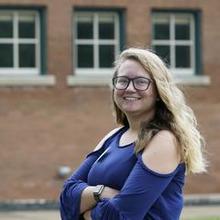
Jillian Marlowe
Degree
BS from Clemson University
Advisors
Dr. Sian Durward-Akhurst
Dr. Molly McCue
Matson, Anders
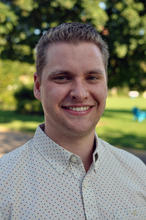
Anders Matson
Degree
B.S., Biology, Augsburg College
Advisor
Dr. Bruce Walcheck
Research
My research interests are genetic engineering and transplant immunology. My research is currently focused on the use of CRISPR/Cas9 gene editing to create a porcine organ donor that elicits a lower immune response from humans as compared to non-genetically engineered donors. This research allows me to explore the efficiency of the CRISPR Cas9 system and the potential for off target mutations. This work has resulted in the ability to characterize and optimize CRIPSR efficiency at gene-targeting sites. Characterization of the genetically engineered porcine donors involves pre-transplant immunologic screening that determines the potential for immune rejection between the non-human primate recipient and porcine donor. My research also includes post-transplant immunologic monitoring of the xenograft recipients. While we have made great progress in genetic engineering, the islet cells we transplant still under go an eventual immune assault. I work with our immune monitoring team to unravel the complexities of B and T cell activation in response to xenografts.
Publications
- Hosny, N, Matson, AW, Kumbha, R, et al. 3′UTR enhances hCD47 cell surface expression, self‐signal function, and reduces ER stress in porcine fibroblasts. Xenotransplantation. 2021; 28:e12641. https://doi.org/10.1111/xen.12641.
- Rao, JS, Matson, AW, Taylor, RT, Burlak, C, Xenotransplantation Literature Update 2020-2021. Xenotransplantation. 2021; 00:e12685. https://doi.org/10.1111/xen.12685
Murphy, Hannah
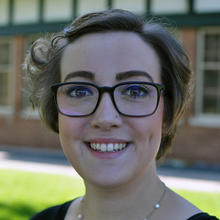
Hannah Murphy
Advisors
Dr. Yuying Liang and Dr. Hinh Ly
Research
My research focuses on the gene expression of arenaviruses, specifically Lassa fever virus. Lassa fever virus causes severe to fatal hemorrhagic fever in humans and has no vaccine or effective drug treatment. I am also involved in the research of using trisegmented arenavirus (Pichinde virus) vector to develop vaccines against various animal and human diseases.
Narayanan, Manojkumar

Manojkumar Narayanan
Education:
B. Tech. Biotechnology, SASTRA University, India.
MS Biological Sciences, University of Massachusetts, USA.
Advisor: Dr. Maxim Cheeran
Research Interests: Neurovirology; Neuroimmunology.
Experience and goals:
My research experience and interest is in studying the molecular mechanisms underlying the pathogenesis of virus and its infection in the brain. Previously, under the guidance of Dr. Groopman at Harvard, I studied the mechanisms behind the enhanced prevalence of HIV-1 Associated Neurocognitive Disorders (HAND) in cocaine-using HIV-1 infected individuals. My other experiences include developing Retroviral vectors for targeted gene therapy. During my PhD program at CVM, I would like to study the pathobiology and neurological complications of virus infection in brain using animal models.
Park Lang, Haeree

Haeree Park Lang
Degrees
B.S. Pre-veterinary Studies, University MA-Amherst
DVM/PhD in progress, University of Minnesota
Advisor
Dr. Steven Friedenberg
Dr. Marc Jenkins
Research
Autoimmune Addison's Disease (AAD) is a life-threatening endocrinopathy that naturally develops in humans and dogs and is characterized by the immune-mediated destruction of the adrenal cortex. To understand the immunological causes of AAD autoreactivity, we are creating a canine model for AAD to identify and characterize the autoantigen(s) and the autoreactive CD4+ T cell population involved in disease onset. To study these autoimmune triggers, we will utilize canine-specific peptide MHC II tetramers and T cell activation marker assays that we have developed. With a more informed understanding of AAD, we hope to bring the standard of treatment into a new era of antigen-specific therapeutics for the benefit of humans and dogs alike.
Awards
- JoAnne Schmidt O'Brien/Bee Hanlon Research Fellow, 2021-2022
- NIH T35 Summer Training Grant, 2019
- AKC Canine Health Foundation National Parent Club Conference Travel Grant, 2019
- The Eisenberg Family Scholarship, 2019
- The Cleaver Scholarship, 2019
- The Ray and Lee Janssen Memorial Endowment Scholarship, 2018
Peng, Yiyun
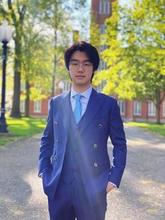
Yiyun (Fenix) Peng
Degree
BA, Biology, Franklin & Marshall College
Advisor
Dr. Bruce Blazar
Phu, Sydney

Sydney Phu
Degree
BS, Biology, Oregon State University
Advisor
Dr. Hinh Ly
Phung, Gwen

Gwen Phung
Advisor
Dr. Jeffrey Miller
Research
I am interested in studying the interactions between natural killer cells (NK cells) and suppressive immune cells in the tumor microenvironment which include myeloid-derived suppressor cells (MDSCs) and regulatory T cells (Tregs). More specifically, my current project examines the reciprocal interactions between induced pluripotent stem cells (iPSCs)-derived NK cell (iNK) that are currently being tested clinically (NCT03841110), with MDSCs and Tregs, in order to investigate if the lack of in vivo persistence of the iNKs is due to suppressive immune cells. With better understanding, we hope to improve the efficacy of iNKs as a cancer immunotherapy.
Quintana, Ruth
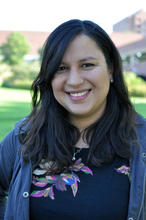
Ruth Quintana
Degree
B.S., Biology, University of Puerto Rico Piedras
Advisor
Dr. Alonso Guedes
Area of research interest
My current research focuses on neuro-immune interactions relevant for chronic pain and opioid mechanisms. Specifically, we study the role of calcium signaling in glia and its involvement in nociception, opioid antinociception and opioid tolerance using mouse models of chronic pain.
Sanchez, Shania
Shania Sanchez
Degree
B.S. Biology, University of New Mexico
Advisors
Dr. Yuying Liang and Dr. Hinh Ly
Research
Host-pathogen interactions focusing on vaccine development for zoonotic viruses.
Snyder, Kristin
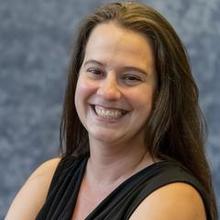
Kristin Snyder
Dual D.V.M./Ph.D. student, currently in PhD curriculum
Degree
B.S., Biology, Susquehanna University
Advisors
Dr. Bruce Walcheck & Dr. Jianming Wu
Research
My thesis project aims to enhance the effector functions of natural killer (NK) cells to improve NK targeted killing of ovarian cancer. Most solid tumors, including ovarian cancer, have not been responsive to immunotherapies, such as CAR-T cell or monoclonal antibody therapies, in the clinic. Therefore, it is critical to develop new and effective strategies for patients with refractory disease. Our approach was to design a novel high-affinity Fc gamma receptor, CD64/16, that can be used in conjunction with IgG monoclonal antibodies already on the market. In addition to new insights gained in the treatment of ovarian cancer, this work will provide a framework for using Fc receptor based adoptive cell therapies for treatment of several solid cancers in both humans and companion animals. Our long-term goal is to develop “off-the-shelf” cellular products for human or animal use.
Steinhoff, Magie
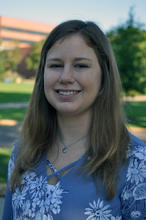
Magie Steinhoff
Degrees
M.B.S., Biological Sciences, University of Minnesota - Twin Cities
B.S., Animal Sciences, University of Missouri - Columbia
Advisor
Dr. Sabarinathan Ramachandran
Research
My research at the Schulze Diabetes Institute is focused on altering surface glycan expression of porcine cells through genetic engineering. Our goal is to produce a donor organ that is less immunoreactive when used in xenotransplantation. Specifically, my goal is to increase the level of ɑ2,6 sialylation on pig cells to inhibit activation of human B cells in response to porcine cells.
Publications
- Kumbha, R, Hosny, N, Matson, AW, Steinhoff, M, Hering, BJ, & Burlak, C. (2020). Efficient production of GGTA1 knockout porcine embryos using a modified handmade cloning (HMC) method. Research in veterinary science, 128, 59-68. https://www-sciencedirectcom.ezp1.lib.umn.edu/science/article/pii/S00345....
- Hosny, N, Matson, AW, Kumbha, R, Steinhoff, M, Rao, JS, El-Abaseri, TB, Sabek, NA, Mahmoud, MA, Hering, BJ, Burlak, C. 3’UTR enhances hCD47 cell surface expression, self-signal function, and reduces ER stress in porcine fibroblasts. Xenotransplantation. 2020; 00:e12641. https://onlinelibrary.wiley.com/doi/pdf/10.1111/xen.12641casa_token=1Ogn....
Strell, Phoebe
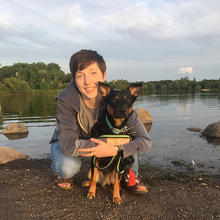
Phoebe Strell
Degree
BA, Biology and Neuroscience, Augustana College
Dual D.V.M./Ph.D. student, currently in PhD curriculum
Advisor
Dr. Walter Low
Wenthe, Sophia

Sophia Wenthe
Degree
BA from University of Minnesota Twin Cities
Advisor
Dr. Beau Webber
Young, Jared

Jared Young
Dual D.V.M./Ph.D. student, currently in PhD curriculum
Degrees
B.S. Animal Sciences, West Texas A&M University
Adviser
Dr. Noelle Noyes
Research
I am a dual DVM/PhD program candidate at the Univeristy of Minnesota. Hwile completing my PhD; I ill study epidemiology with an emphasis in microbial ecology and bioinformatics. My research interests include microbiome and resistome dynamics in food animals and production systems, and development of bioinformatics tools to better analyze high throughput sequencing data.